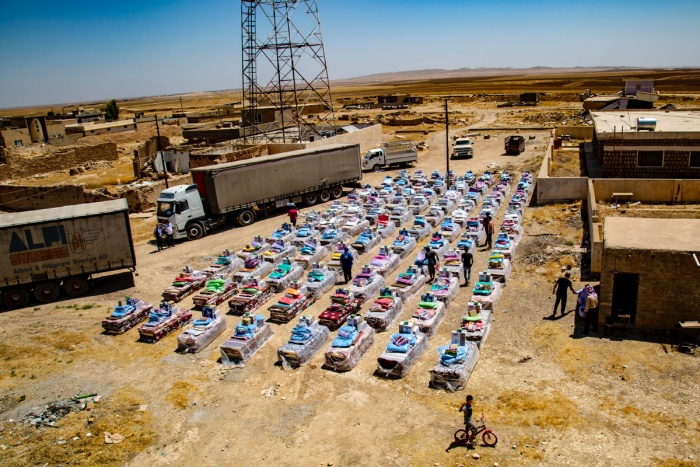Establishing a safe zone in Syria will expose the town of Sinjar (Shingal) and the Yazidi (Ezidi) minority to security risks, the mayor of the town said on Tuesday, according to the Kurdistan 24 news website.
Maham Khalil, the mayor of Sinjar, said a proposed safe zone along Syria’s northern border with Turkey would force the remaining Islamic State in Iraq and the Levant (ISIL) sleeper cells, along with the terror group’s sympathizers, into the Syria-Iraq border region. Khalil told Kurdistan 24 this would “negatively affect the security of the Ezidi people.”
“The issue lies within our border,” he added. “Up until this point, the Iraqi government cannot ensure the security of the Syrian-Iraqi border, and, therefore, Baghdad cannot ensure the safety of the Ezidi people.”
The Shingal mayor pointed to the significant number of Yazidis who live at displacement camps in the Kurdistan region. Most of them refuse to return to Shingal, despite its liberation from ISIL, due to security concerns. Khalil underlined that a safe zone would further deteriorate the security of the area and force the ethnic minority to seek safety elsewhere.
“The existence of unlawful armed forces in Shingal and its mountainous areas, such as the Kurdistan Workers’ Party [PKK], has disrupted the return of displaced persons from the Kurdistan region camps.”
The emergence of ISIL and its violent assault on Shingal in August 2014 led to the displacement of hundreds of thousands of Yazidis. Most of them fled to the autonomous Kurdish region, while others resettled in neighboring countries in the region or Western states.
Others were not as lucky and remained stranded in the war zone, where they experienced atrocities and mass executions at the hands of the terror group for years.
Militants subjected women and girls to sexual slavery, kidnapped children, forced religious conversions, executed scores of men and abused, sold and trafficked women across areas they controlled in Iraq and Syria.

